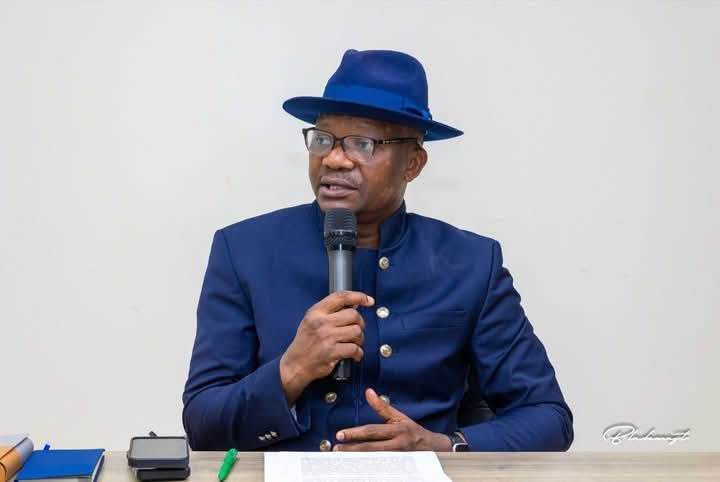The Delta State Commissioner for Works (Rural Roads) and Public Information, Mr. Charles Aniagwu, has reaffirmed Governor Sheriff Oborevwori’s commitment to delivering functional and high-quality education across the state.
Speaking on a national television programme monitored in Asaba, the state capital, Aniagwu emphasized the importance of equipping students with the skills and knowledge needed for a competitive future. He also addressed concerns regarding the abandoned Sapele Polytechnic project in Deghele-Iriabome communities, Elume District, Sapele LGA, assuring the public of Governor Oborevwori’s continued investment in the education sector.
“There is a reason for establishing institutions.
“I told you that we needed to look at the issues of quality and functionality as part of the aftermath of the 2016 education summit organized by the state government”, Aniagwu stated.
He added, “We had an education summit in 2016 and brought in professionals from across the country to assist us in conducting a needs assessment in the education sector, ensuring that our students do not remain in school longer than necessary due to strikes”.
“The main goal of that summit was to ensure our students receive quality education that positions them to compete globally”, Aniagwu continued.
“Our education philosophy is to have accessible and functional institutions, not just to establish higher institutions that make us politically correct”, he further added.
Aniagwu further discussed the state’s educational developments prior to the creation of three new universities by the Ifeanyi Okowa administration: “We had three polytechnics in Ogwashi-Uku, Ozoro, and Otefe-Oghara. These polytechnics were strategically located in the three senatorial districts, along with three colleges of education in the same districts. We also had the main campus of Delta State University in the Central Senatorial District, with other campuses in the South and North”.
“We, as a government, continued assessing what we truly needed, not just playing politics,” he explained.
“If you establish three polytechnics and have 300 students in one and possibly 500 lecturers, only for it to become a ‘mushroom’ institution, how has that helped the state?”.
Regarding the establishment of new universities, Aniagwu said, “When we examined the trend, we saw that many people were gravitating toward university education, and our existing university lacked the capacity to accommodate them. Based on this, we established three new universities, with the Polytechnic at Ozoro converted to Delta State University of Science and Technology, the campus at Asaba becoming Dennis Osadebay University, and the College of Education at Agbor transforming into the University of Delta”.
“No state in Nigeria can boast of the number of state-owned higher institutions we have, to the extent that out of our 10 Federal constituencies, nine now have higher institutions”, Aniagwu stated.
“In the last nine and a half years, no higher institution in Delta has gone on strike. While strikes have affected other schools across the nation, our institutions have remained operational because we’ve consistently worked to meet their needs and ensure functionality”.
“Governor Oborevwori has been fast and steady in advancing a functional and efficient education system that meets the needs of both the present and future”, Aniagwu said.
He concluded, “As an administration, we do not intend to abolish any established institution. We will, however, remain committed to proceeding with our educational needs assessment”.
Aniagwu assured that the Oborevwori administration will continue to prioritize quality, functional education for Deltans in line with the administration’s MORE Agenda.

























